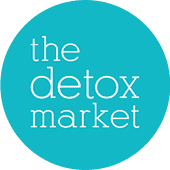July 7th is World Chocolate Day!
At Knew Health, we absolutely love our leafy greens and seize every chance to nourish ourselves with organic produce. However, nothing can quite match the rich, velvety, and irresistibly indulgent taste of milk, white, and dark chocolate. As we approach the exciting celebration of World Chocolate Day on July 7th, we’re reminded of chocolate’s unique ability to bring joy, comfort, and even some surprising health benefits. So go ahead, treat yourself, and join us in honoring the magic of chocolate!
Not All Chocolate is Created Equal
 Let’s break it down: Milk chocolate, white chocolate, and dark chocolate—are they all the same? Do they all offer the same health benefits? Not quite. It’s important to know that dark chocolate is definitely the best choice for your health. It has the least sugar and the most cacao, which contains flavonoids. Flavonoids have so many health benefits, which we’ll talk about in this article.
Let’s break it down: Milk chocolate, white chocolate, and dark chocolate—are they all the same? Do they all offer the same health benefits? Not quite. It’s important to know that dark chocolate is definitely the best choice for your health. It has the least sugar and the most cacao, which contains flavonoids. Flavonoids have so many health benefits, which we’ll talk about in this article.
But even dark chocolate is not created equally. Every piece of dark chocolate has a percentage of cacao in it. The higher the cacao, the healthier for you. By comparison, milk chocolate usually contains ten to fifty percent cacao, whereas dark contains more than fifty percent. Seventy percent or higher is a great number to aim for when shopping in the candy aisle. However, beware of higher cacao content because manufacturers will often add more sugar to offset the bitter taste. Always check the nutrition labels and compare the sugar content of your dark chocolate.
Top Benefits of Dark Chocolate
So, let’s get right to it. Why is dark chocolate considered “healthy” by many experts? There are countless reasons. Here are the top reasons we think this sweet treat should be an integral part of your diet:
Rich in Antioxidants:
It is loaded with powerful antioxidants, such as flavonoids and polyphenols, which help neutralize free radicals and reduce oxidative stress in the body.
Improves Heart Health:
Consuming this decadent treat in moderation has been linked to improved heart health. It can help lower blood pressure, improve blood flow, and reduce the risk of heart disease.
Boosts Brain Function:
The flavonoids may enhance brain function by increasing blood flow to the brain, improving cognitive function, and reducing the risk of neurodegenerative diseases.
Reduces Inflammation:
Dark chocolate’s anti-inflammatory properties can help reduce inflammation in the body, which is beneficial for overall health and can help prevent chronic diseases.
Enhances Mood:
Dark chocolate can stimulate the production of endorphins and serotonin, the body’s natural “feel-good” chemicals, which can help improve mood and reduce symptoms of depression.
Supports Weight Loss: 
When eaten in moderation, it can help control appetite and reduce cravings due to its rich, satisfying taste, which may aid in weight management.
Protects Skin:
The flavonoids can protect the skin from sun damage, improve blood flow to the skin, and increase skin density and hydration.
Improves Blood Sugar Levels:
Dark chocolate has a low glycemic index, meaning it doesn’t cause a rapid spike in blood sugar levels. It may also improve insulin sensitivity, which is beneficial for managing diabetes.
Provides Essential Nutrients:
Dark chocolate is a good source of essential minerals such as iron, magnesium, copper, and manganese, which are necessary for various bodily functions.
May Improve Cholesterol Levels:
Some studies suggest that it can improve cholesterol levels by increasing HDL (good) cholesterol and reducing LDL (bad) cholesterol oxidation.
Potential Anti-Cancer Properties:
Some studies suggest that the antioxidants in dark chocolate may help protect cells from damage that can lead to cancer, although more research is needed to confirm this effect.
May Improve Vision: 
Studies have shown flavonoids can enhance blood flow to the retina and improve vision, particularly in low-contrast situations.
Supports Gut Health:
Dark chocolate acts as a prebiotic, providing food for beneficial gut bacteria, which can improve digestion and overall gut health.
Reduces Stress:
Regular consumption of dark chocolate has been linked to reduced levels of stress hormones, including cortisol.
Boosts Exercise Performance:
The epicatechin in dark chocolate can enhance the body’s nitric oxide production, improving oxygen delivery to muscles. As a result, it may boost athletic performance.
Remember, these benefits are most pronounced when at least 70% cacao is present.
A Word of Caution
 Like every indulgence, dark chocolate should be enjoyed in moderation. While its health benefits are clearly abundant, some important factors should be considered before you overindulge. Dark chocolate contains caffeine and is relatively high in calories. Some may contain trans fats and added sugar, which is common with high cacao percentages. It’s essential to compare nutrition labels and consider all of this, especially if this dark delight is a regular part of your diet. Excess calories, sugar, and transfat can negate many health benefits.
Like every indulgence, dark chocolate should be enjoyed in moderation. While its health benefits are clearly abundant, some important factors should be considered before you overindulge. Dark chocolate contains caffeine and is relatively high in calories. Some may contain trans fats and added sugar, which is common with high cacao percentages. It’s essential to compare nutrition labels and consider all of this, especially if this dark delight is a regular part of your diet. Excess calories, sugar, and transfat can negate many health benefits.
For those following a vegan diet, check labels, as not all dark chocolate is vegan-friendly. Some may contain traces of milk products or may be produced in facilities that do. Furthermore, some may experience adverse reactions, such as acid reflux or migraines. Therefore, while dark chocolate can be a delightful and healthy treat, it’s important to enjoy it in moderation and be mindful of these potential drawbacks.
Final Thoughts
Dark chocolate is not just a tasty treat but also a powerhouse of health benefits! From boosting your mood and brainpower to supporting heart health and glowing skin, a little bit can do wonders. Just remember, moderation is key. So, go ahead and enjoy a square (or two!) of your favorite chocolatey goodness, and feel good knowing you’re indulging in something that’s good for you. Treat yourself and enjoy the sweet rewards!
Disclaimer: This information is being provided to you for educational and informational purposes only. It is being provided to educate you about how to take care of your body and as a self-help tool for your own use so that you can reach your own health goals. It is not intended to treat or cure any specific illness and is not to replace the guidance provided by your own medical practitioner. This information will be used at your own risk based on your judgment. If you suspect you have a medical problem, we urge you to take appropriate action by seeking medical attention.
Sources:
“A Guide to Choosing the Healthiest Chocolate.” Blue Cross Blue Shield of Vermont, 7 Jul. 2023, www.bluecrossvt.org/health-community/blog/listing/guide-choosing-healthiest-chocolate.
Gleim, Sarah. “Health Benefits of Dark Chocolate.” WebMD, 18 Aug. 2023, www.webmd.com/diet/health-benefits-dark-chocolate.
“The Benefits of Having a Healthy Relationship with Chocolate.” Johns Hopkins Medicine, www.hopkinsmedicine.org/health/wellness-and-prevention/the-benefits-of-having-a-healthy-relationship-with-chocolate.










































